
Sound
Doom Island is a personal perspective on Martin's life and autism and schizophrenia from the inside, in a language we can all understand: film. Viewers join Martin when he began film making using Rick Schmidt's book in 1988 and along the way see Martin experience love, grief, and try to figure out existential meaning through the unique perspectives afforded by autism and psychosis, and even join him on a journey to Switzerland to visit a mysterious nuclear physics research laboratory, where the God Particle was discovered. "One of my favorite indie works, beautifully made, original, and as perfectly personal as it gets." Rick Schmidt author of 'Feature Filmmaking at Used Car Prices: How to Write, Produce, Direct, Film, Edit and Promote a Feature-Length Film for Less Than $10,000.'

Music
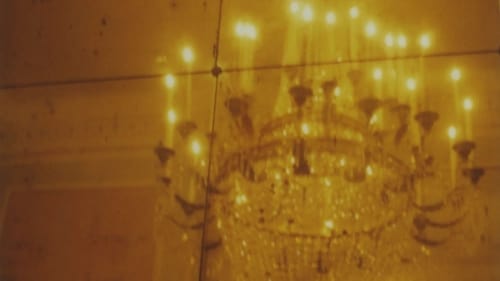
Original Music Composer
The year 2019 marks the 350th year of existence of the Opéra de Paris, and the Opéra national is staging two exceptional shows at the Palais Garnier in the form of an inaugural gala. Under the direction of Dan Ettinger, the principal dancers, soloists, corps de ballet and orchestra of the Opéra national de Paris will perform extracts from famous ballets as well as some of the most popular opera arias. Soprano Sonya Yoncheva, tenor Bryan Hymel and baritone Ludovic Tézier are among the headliners. A magical experience!

Original Music Composer
Amour, the messenger of the gods, tells Orpheus that he may descend to the underworld and return with Eurydice. His singing has the power to appease the Furies and animate the blessed Shadows. Yet, his voice cannot reassure Eurydice who despairs of the feigned indifference of Orpheus, put to the test by Jupiter. Raphaël Pichon conducts the opera of operas and Aurélien Bory displays the giddiness of the mental and supernatural spaces traveled by Orpheus and beyond. Marianne Crebassa plays a new breeches role with Hélène Guilmette (Hélène in Le Timbre d’argent) and Lea Desandre (the title role in Alcione).

Original Music Composer
The Florentine sculptor and silversmith Benvenuto Cellini rapidly attained a degree of renown that went beyond the confines of Italy. Invariably embroiled in conspiracies, intrigues and quarrels, Cellini is commissioned by the Pope to cast a large sculpture of Perseus. He is loved by Teresa, but she is promised to Fieramosca, an academic artist who has not been favoured with a papal commission. Terry Gilliam’s exuberant production draws the protagonists into a delirious and joyful yet claustrophobic and megalomaniac world: a flaring up of contagious madness.

Compositor
The myth of Orpheus and Eurydice tells of the impossible return to the land of the living by a woman who has been mortally wounded. The poet-musician Orpheus’s eventful journey in the world of shadows, searching for the one he loves and cannot let go, takes him to the Elysian Fields. This is an unexpected place of peaceful, composed of countryside and those in its thrall. It is here that Eurydice is now installed. During his journey Orpheus is thus introduced to a surprising reality: an enclave, a protected place, both near and yet inaccessible, disturbing, between life and death.

Music
Leading Chopin interpreter Nelson Freire is the soloist in Chopin’s lyrical and brilliant Second Piano Concerto. On the podium the French conductor Lionel Bringuier makes his Proms debut conducting the BBC Symphony Orchestra and gives a sizzling performance of Roussel’s Symphony No.3 and of Ravel‘s score for the ballet Daphnis et Chloé – Suite No 2. ‘’The programme, otherwise entirely French, highlights everywhere this purity of style and gesture (which would give him more in common with Pierre Monteux than Charles Munch), which charms all who see and hear the young conductor: a clear and understandable beat, subtle control of balance and level, natural rhythm and pulse, and expression without embellishment.’’
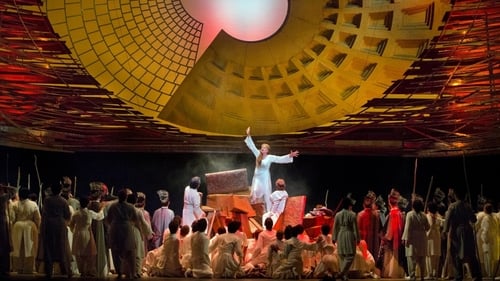
Writer
Berlioz’s epic masterpiece retells the magnificent saga of the aftermath of the Trojan War and the exploits of Aeneas. Rising tenor Bryan Hymel, in his Met debut, stars as the hero charged by the gods with the founding of the city of Rome. Susan Graham is Dido, Queen of Carthage, who becomes Aeneas’s lover, and Deborah Voigt sings Cassandra, the Trojan princess whose warnings about the impending destruction of Troy go unheeded. Francesca Zambello’s atmospheric production, featuring choreography by Doug Varone, is led by Met Principal Conductor Fabio Luisi.

Original Music Composer
Berlioz’s epic masterpiece retells the magnificent saga of the aftermath of the Trojan War and the exploits of Aeneas. Rising tenor Bryan Hymel, in his Met debut, stars as the hero charged by the gods with the founding of the city of Rome. Susan Graham is Dido, Queen of Carthage, who becomes Aeneas’s lover, and Deborah Voigt sings Cassandra, the Trojan princess whose warnings about the impending destruction of Troy go unheeded. Francesca Zambello’s atmospheric production, featuring choreography by Doug Varone, is led by Met Principal Conductor Fabio Luisi.

Writer
After the destruction of Troy, the Trojan warrior Énée sets out on a journey to found a new dynasty. He meets Didon, Queen of Carthage, and falls in love. But will Énée's love for Didon prove stronger than his sense of duty? LES TROYENS ('The Trojans') is a tour de force of music that ranges from fiery military marches to intense choruses, passionate soliloquies – such as those of the prophetess Cassandre – and the lyrical love duets of Didon and Énée. It is Hector Berlioz's largest work and he wrote the libretto himself, drawing upon his intimate knowledge of Virgil's Aeneid. To the composer's disappointment, LES TROYENS was only performed once in full during his lifetime and was often presented in shortened form during the 20th century. The Royal Opera's production provides a rare chance to see this epic work in its entirety. David McVicar's staging is on an enormous scale, assembling one of the largest casts ever seen at Covent Garden.

Original Music Composer
After the destruction of Troy, the Trojan warrior Énée sets out on a journey to found a new dynasty. He meets Didon, Queen of Carthage, and falls in love. But will Énée's love for Didon prove stronger than his sense of duty? LES TROYENS ('The Trojans') is a tour de force of music that ranges from fiery military marches to intense choruses, passionate soliloquies – such as those of the prophetess Cassandre – and the lyrical love duets of Didon and Énée. It is Hector Berlioz's largest work and he wrote the libretto himself, drawing upon his intimate knowledge of Virgil's Aeneid. To the composer's disappointment, LES TROYENS was only performed once in full during his lifetime and was often presented in shortened form during the 20th century. The Royal Opera's production provides a rare chance to see this epic work in its entirety. David McVicar's staging is on an enormous scale, assembling one of the largest casts ever seen at Covent Garden.

Writer
After a siege of ten years, the Greeks leave Troy. A giant wooden horse has been left on the beach. Despite Cassandra's dark premonitions, the offering is borne into the city...Pierre Audi directs Dutch soprano Eva-Maria Westbroek and American tenor Bryan Hymel in this epic Berlioz's opera, that requires an omnipresent chorus, a huge orchestra and a great virtuosity from the solists.

Original Music Composer
After a siege of ten years, the Greeks leave Troy. A giant wooden horse has been left on the beach. Despite Cassandra's dark premonitions, the offering is borne into the city...Pierre Audi directs Dutch soprano Eva-Maria Westbroek and American tenor Bryan Hymel in this epic Berlioz's opera, that requires an omnipresent chorus, a huge orchestra and a great virtuosity from the solists.

Adaptation
This grand opera, complete with ensembles and ballets, large choruses and orchestral set pieces, is given an appropriately grand treatment in this production by the renowned Catalan theater group "La Fura dels Baus" recorded at Valencia's Palau de les Arts. In the first part of the work, Padrissa plays with the present-day meaning of "Trojans" as computer viruses: his Trojan horse carries within it the infection that will cause system failures and, ultimately, destruction. In the second part, Carthage is presented as the mysterious seat of a future civilization, where human life is heading towards self-destruction through environmental disasters.

Music
This grand opera, complete with ensembles and ballets, large choruses and orchestral set pieces, is given an appropriately grand treatment in this production by the renowned Catalan theater group "La Fura dels Baus" recorded at Valencia's Palau de les Arts. In the first part of the work, Padrissa plays with the present-day meaning of "Trojans" as computer viruses: his Trojan horse carries within it the infection that will cause system failures and, ultimately, destruction. In the second part, Carthage is presented as the mysterious seat of a future civilization, where human life is heading towards self-destruction through environmental disasters.
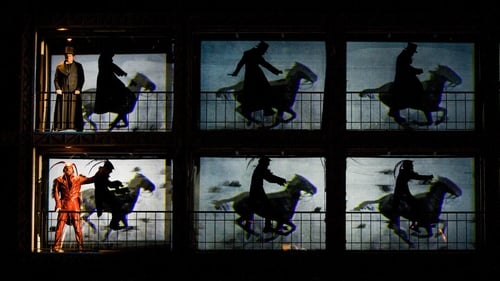
Writer
Radiant mezzo-soprano Susan Graham and dashing Italian tenor Marcello Giordani are unlucky lovers in La Damnation de Faust, Hector Berlioz’s classic take on dancing with the devil.

Original Music Composer
Radiant mezzo-soprano Susan Graham and dashing Italian tenor Marcello Giordani are unlucky lovers in La Damnation de Faust, Hector Berlioz’s classic take on dancing with the devil.
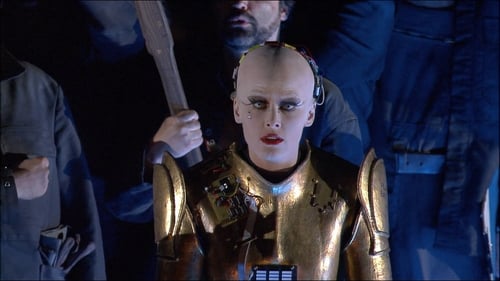
Original Music Composer
Actuación en vivo del Festival de Ópera de Salzburgo, agosto de 2007. La historia cuenta el amor de Cellini por Teresa, hija del tesorero papal Balducci. Su rival, el escultor papal Fieramosca, escucha a Cellini conspirar para huir con Teresa durante el carnaval.

Writer
This epic opera follows Virgil, beginning as the Greeks appear to have ceded the field after ten years of the Trojan War. Cassandra tries to warn of the terrible fate to come, but fate is set and Troy falls. The first two acts cover this tragic end, then the flight of survivors to Carthage and events at Carthage continue in acts 3 - 5, culminating in the further voyage for Italy and Rome. This is Virgil's classic epic, in operatic form, in about a three and a half hour performance from French Opera.

Original Music Composer
This epic opera follows Virgil, beginning as the Greeks appear to have ceded the field after ten years of the Trojan War. Cassandra tries to warn of the terrible fate to come, but fate is set and Troy falls. The first two acts cover this tragic end, then the flight of survivors to Carthage and events at Carthage continue in acts 3 - 5, culminating in the further voyage for Italy and Rome. This is Virgil's classic epic, in operatic form, in about a three and a half hour performance from French Opera.

Music
This epic opera follows Virgil, beginning as the Greeks appear to have ceded the field after ten years of the Trojan War. Cassandra tries to warn of the terrible fate to come, but fate is set and Troy falls. The first two acts cover this tragic end, then the flight of survivors to Carthage and events at Carthage continue in acts 3 - 5, culminating in the further voyage for Italy and Rome. This is Virgil's classic epic, in operatic form, in about a three and a half hour performance from French Opera.

Orchestrator
Live from Munich, October 2003. A husband laments the death of his wife. He follows her to the underworld and finds her there. But he is forbidden to look at her. He does it anyway! Has he now lost her forever? Or will the gods' hearts be moved by this loving, "human" glance? In 1762, Gluck put the quietus on the artificiality of baroque opera with this work - from then on the human element took center stage.

Writer
Alexandre Tarta's production of Berlioz's opera, recorded live at the Salzburg Festival in 2000. Sylvain Cambreling conducts, with performances by Jon Villars, Russell Braun and Tigran Martirossian.

Writer
The three main soloists have voices on a scale that can compete with these flashy production values – White and Kasarova, in particular, sing at a level of intensity that would swamp anything less; the climactic seduction trio has rarely been sung so well or with such an overpoweringly polymorphous eroticism. Cambreling marshals his forces effectively, giving full rein to the work's showstoppers like the "Hungarian March" but not neglecting the subtler less kinetic Gluckian side of Berlioz's vocal writing. Recorded live at the Salzburger Festspiele, 1999.

Music
‘La course à l’abîme’ is a depiction of the final ride into hell from ‘La Damnation de Faust’ (1846) by Hector Berlioz.

Writer
This live recording was made at the Royal Albert Hall during one of Londons famous Promenade Concert seasons. Sir Georg Solti conducts the Chicago Symphony Orchestra and Chorus in a magnificent performance of Berliozs concert cantata. This feast of Berlioz launched Soltis farewell tour with the orchestra he had directed for twenty years and was described by The Times as the unsurpassable culmination of two decades of music-making...one that summarised all that has been most admirable about Soltis long reign in Chicago. Like reading the book by flashes of lightning was how one writer described the relationship of Berlioz to Goethe in this Dramatic Legend, his way of shaping twenty scenes selected from the story into a narrative in four parts. Though it has sometimes been staged, the works drama is to be found within the music itself, which illuminates the incidents with what the conductor Sir Thomas Beecham once called a bunch of the loveliest tunes in existence.

Original Music Composer
This live recording was made at the Royal Albert Hall during one of Londons famous Promenade Concert seasons. Sir Georg Solti conducts the Chicago Symphony Orchestra and Chorus in a magnificent performance of Berliozs concert cantata. This feast of Berlioz launched Soltis farewell tour with the orchestra he had directed for twenty years and was described by The Times as the unsurpassable culmination of two decades of music-making...one that summarised all that has been most admirable about Soltis long reign in Chicago. Like reading the book by flashes of lightning was how one writer described the relationship of Berlioz to Goethe in this Dramatic Legend, his way of shaping twenty scenes selected from the story into a narrative in four parts. Though it has sometimes been staged, the works drama is to be found within the music itself, which illuminates the incidents with what the conductor Sir Thomas Beecham once called a bunch of the loveliest tunes in existence.

Music
Una pareja de amantes pasan la noche en el apartamento de él. Durante la velada, un cuadro llama la atención de la mujer (“Saturno devorando a sus hijos” de Francisco de Goya), y se convierte en vampira al quedarse observando el óleo. Seguidamente ataca a su pareja que, al defenderse, la mata, y la entierra en el patio, pero al volver a la casa, la mujer está en la cama durmiendo plácidamente como si no hubiera pasado nada.

Writer
Berlioz’s colossal masterpiece requires stupendous forces—dozens of soloists, enormous chorus, orchestra and ballet, a superb conductor who understands the uniqueness of the score—plus a production that does visual justice to the work. “A stupendous achievement” was one critic’s assessment of Peter Wexler’s inventive production. And with James Levine’s wizardry galvanizing the marvelous all-star cast, this is truly a gem. Plácido Domingo is the legendary hero Aeneas, Jessye Norman the obsessed prophetess Cassandra, and Tatiana Troyanos is Queen Dido, who commits suicide when Aeneas leaves her.

Original Music Composer
Berlioz’s colossal masterpiece requires stupendous forces—dozens of soloists, enormous chorus, orchestra and ballet, a superb conductor who understands the uniqueness of the score—plus a production that does visual justice to the work. “A stupendous achievement” was one critic’s assessment of Peter Wexler’s inventive production. And with James Levine’s wizardry galvanizing the marvelous all-star cast, this is truly a gem. Plácido Domingo is the legendary hero Aeneas, Jessye Norman the obsessed prophetess Cassandra, and Tatiana Troyanos is Queen Dido, who commits suicide when Aeneas leaves her.

Music
A young man, the soldier and bachelor type, is looking for Anima - the eternal unattainable female who alternately appears as a virgin, harlot, mother, saint but also as a witch. In his illusions and visions made up of images which are multi-layered and ambiguous, Anima changes from a romantic ideal to a technically two dimensional duplicate which can be reproduced and is half woman, half sewing machine.

Music
A psychedelic combination of Shakespeare, rock & roll and Catholic symbolism in the shape of a Cuban ballet.
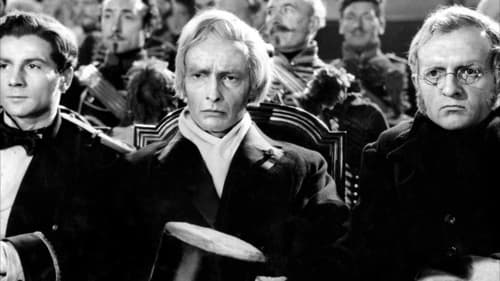
Music
The film is biographical, telling the story of the life and artistic struggles of the French composer Hector Berlioz. Berlioz is shown as a recalcitrant medical student in an anatomy class dreaming of becoming a composer; at a demonstration during a performance at the Paris Opéra conducted by Habeneck; at supper with other young artists (Hugo, Janin, Dumas, Mérimée, Delacroix); and chasing after his future wife Harriet Smithson, after a performance of Hamlet. Also depicted are his life in a garret, while suffering from an illness due to an abscess in the throat; a visit from his mother who curses him; and the composition of the Symphonie fantastique. The film then shows his marital breakdown, the premiere of his opera Benvenuto Cellini, his travels throughout Europe, his second marriage to Marie Recio (called "Marie Martin" in the film), public acceptance in old age and reconciliation with his son.

Poem
The German legend of a scholar's unholy pact with the Devil would have been very familiar to most moviegoers (at least European ones), so Georges Méliès' early cinematic treatment likely got away with simply offering a fancifully illustrated late episode without the earlier narrative context (however, spoken narration provides some of the latter in this restored print). Tempted by Mephistopheles with all kinds of dancing and ethereal babes, Faust is at first excited and then terrified by the sight of various demons and monsters. The painted-set designers really went hog wild on this one, depicting the (sometimes sexy) torments of subterranean Hell with in bold terms (even when ballerinas prance in the foreground). (Dennis Harvey, Fandor)
































